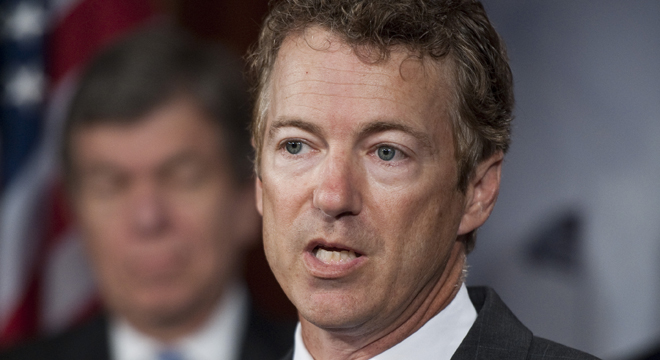You’re a Republican senator. How do you sell a plan to privatize Medicare?
One way is to fashion the massive overhaul as an extension of the private system members of Congress enjoy — the Federal Employee Health Benefits Plan — and then trumpet the merits of that system over existing Medicare.
“We have to convince [seniors] this is something better,” said Sen. Jim DeMint (R-SC), flanked by Sens. Lindsey Graham (R-SC) and Rand Paul (R-KY), authors of a new Medicare privatization plan, at a Capitol press conference on Thursday. “If we thought Medicare was better, we would be on it as senators.”
DeMint is 60 years old. Graham is 56. Paul is 49. Medicare eligibility age is 65.
The plan itself is remarkably similar to ObamaCare, but for seniors. The senators say the system they envision would go a long way toward fixing Medicare’s solvency problem, though the details don’t support the claim.
“Right now we pay $11,000 per person for Medicare, the taxpayer does,” Paul said. “Right now for the federal employee health plan is $5,000. It’s going to be about $7,000 when we put an older crowd in there. Federal employees including myself will have to pay more. It’s about $30 a month more. But I think that’s something we have to do to make it fair to help save Medicare.”
Under the plan, seniors would be subsidized up to 75 percent of their monthly premiums, with wealthier seniors receiving smaller subsidies. The eligibility age would also climb, slowly. But FEHBP per-capita costs are rising faster than Medicare’s — so even if the plan were able to save money at the outset as Paul claims, the costs of the new program would likely surpass projected Medicare costs in the near future.
Unlike ObamaCare, Paul says there would be no mandate requiring seniors to buy insurance — “The system is voluntary in that sense,” he said. “But it will be the new Medicare.This will be Medicare. Medicare will be the federal employee health care plan.” But that would create an incentive for healthier seniors to opt out of the program, triggering what health policy experts term adverse selection — and a “death spiral” for insurance premiums.
In all other ways, the plan is structurally akin to Obama’s health care law. It even kicks in in 2014 for all seniors, just as Obama’s law does for the uninsured. DeMint explained, in admirably honest terms, why Republicans are OK with, essentially establishing Obamacare for seniors, but not for everyone else.
“Medicare is already set up as a government program,” DeMint said. “So we’re beginning to privatize with this idea. To go the other way in the private sector for people who have private employment, and to bring that under government control and to define benefits is completely the opposite direction. So what we’re trying to do with Medicare is move it back toward a plan that we would like.”






